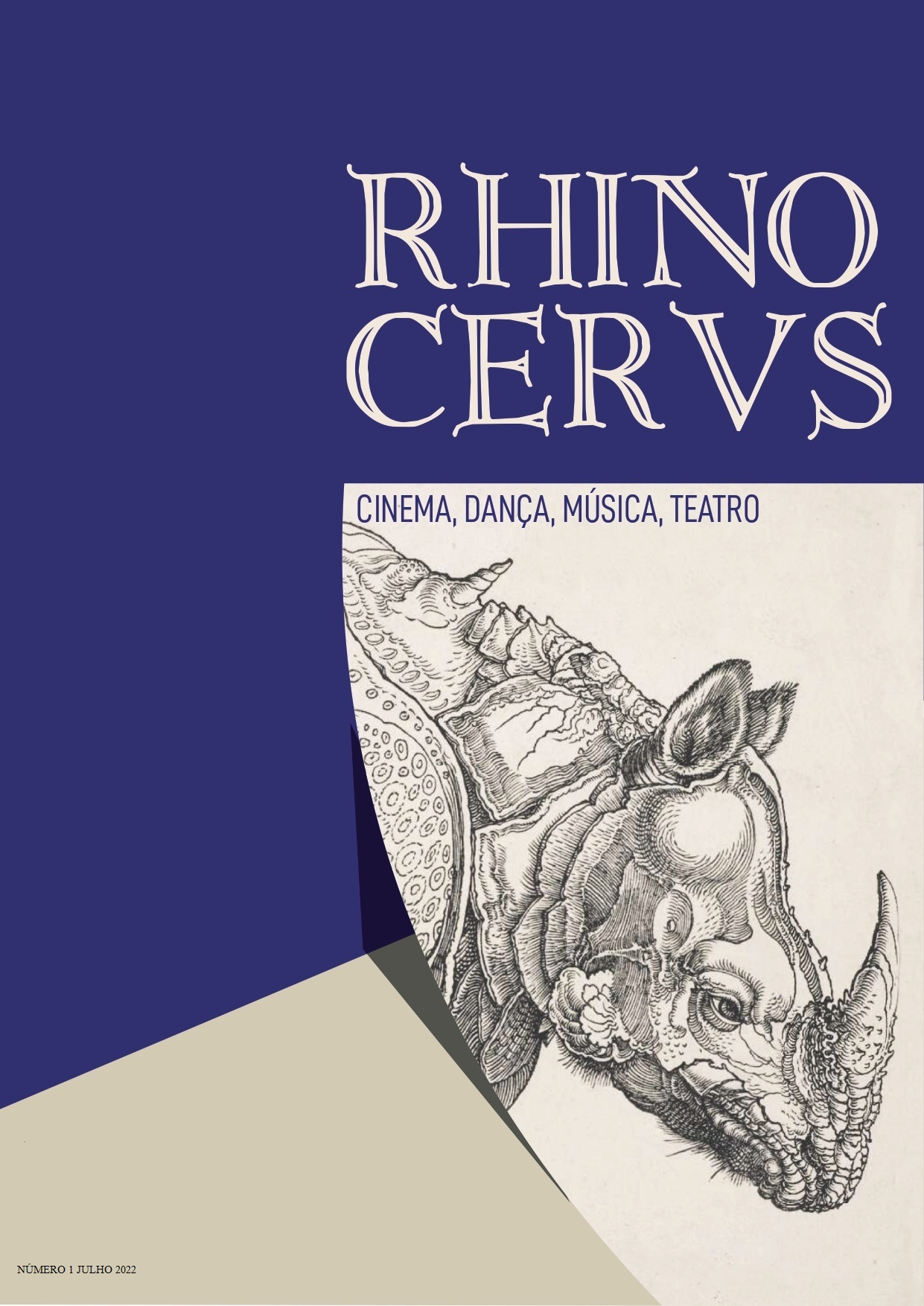Plato’s lesson on gender: androgyny as a search for totality in Hedwig and the Angry Inch (2001)
DOI:
https://doi.org/10.34629/rcdmt.vol.1.n.1.pp103-120Keywords:
Androgyne, Creation myths, Plato’s symposium, Rock music, Glam rock, Hedwig and the Angry InchAbstract
The myth of the Androgyne is appropriated in John Cameron Mitchell’s movie adaptation of his eponymous off-Broadway musical play Hedwig and the Angry Inch. This is a cinematic feat as the filmmaker foregrounds the main topic in the theme itself in a lowbrow approach clashing with its two main canonical sources: the Christian myth of Biblical creation and Plato’s mythological account in The Symposium. The transgender protagonist, Hedwig, is a human divide looking to be symbolically made whole, which she manages to as a rock musician. Thus, Plato’s myth of creation finds its natural artistic correlate in glam rock. Musical art is here equated with creation, and the androgynous artist Hedwig, endowed with both female and male psychic principles represents the core of the artistic duality. This film is not only an opus about creation in general, but a movie about the myth of the author and his/her intrinsic nature.
Downloads
References
Bíblia Sagrada Contendo o Velho e o Novo Testamento. Revised and augmented edition. Translated by João Ferreira de Almeida. 1979. Lisboa: Sociedade Bíblica. Chevalier, Jean, and Alain Gheerbrandt. 1982.
Dictionnaire des Symboles. 1969. Revised and enlarged edition. Paris: Robert Laffont/Jupiter.
Csiksentmihahalyi, Mihaly. 1997. Creativity: The Psychology of Discovery and Invention. New York, London et al.: Harper Perennial.
Delcourt, Marie. O Mito de Hermafrodita. [1958] 1980. Translated by Maria Luísa Trigueiros Machado. Lisboa: Arcádia.
Mitchell, John Cameron. 2001. Hedwig and the Angry Inch. DVD. Directed by John Cameron Mitchell. S. João da Madeira: Prisvídeo S.A., 2002.
Jung, Carl Gustav. 2003. “Anima and Animus” [1953]. In Aspects of the Feminine, translated by R.F.C. Hull, 86-116. London, New York: Routledge.
Kark, Ronit. 2017. Encyclopedia of Personality and Individual Differences. Edited by Zeigler-Hill, Todd K. Shackelford. N. p.: Springer. https://doi.org/10.1007/978-3-319-28099-8.
Cocteau, Jean. 1932. Le Sang d’un Poète. DVD. Directed by Jean Cocteau. N. p.: Studio Canal, 2001.
Libis, Jean. 1980. Le Mythe de l’Androgyne. Paris: Berg International.
MacKinnon, Donald W. 1962. “What Makes a Person Creative?” Saturday Review 69: 15-17.
Monneyron, Frédéric. 1994. L’Androgyne Romantique: Du Mythe au Mythe Littéraire. Grenoble: ELLUG.
Okell, Eleanor R. 2005. “Book Review of Sexual Ambivalence: Androgyny and Hermaphroditism in Graeco-Roman Antiquity, by Luc Brisson” Electronic Antiquity 8. (2): 43-50. https://scholar.lib.vt.edu/ejournals/ElAnt/V8N2/Brisson.pdf. Last accessed May 1, 2022.
Potter, Sally. 1992. Orlando. DVD. Directed by Sally Potter. N. p.: Artificial Eye, 1997.
Ovide. Les Metamorphoses. Translated by Joseph Chamonard. Paris: Flammarion, 1966.
Plato. O Banquete. Translated by Maria Mafalda Viana. Lisboa: Tinta da China, 2019.
Plato. “Aristophanes’ Speech from Plato’s Symposium”. Translated by Connell O’Donovan, August 15, 2015, unpaginated. http://www.connellodonovan.com/hen.html. Last accessed May 1, 2022.
Turner, Alwyn W. 2013. Glam Rock: Dandies in the Underworld. London: V&A.
Haynes, Todd. 1998. Velvet Goldmine. DVD. Directed by Todd Haynes. N. p.: Spirit Entertainment, 2020.
Nix, Laura. 2002. Whether You Like It or Not: The Story of Hedwig. DVD. Directed by Laura Nix. N. p.: Prisvídeo S.A.
Downloads
Published
Issue
Section
License
Copyright (c) 2022 RHINOCERVS: Cinema, Dança, Música, Teatro

This work is licensed under a Creative Commons Attribution-NonCommercial 4.0 International License.
Articles published or submitted to RHINOCERVS: Cinema, Dança, Música, Teatro are licensed according to Creative Commons Attribution License (CC BY-NC 4.0). Authors agree that:
Copyrights of all articles published are retained by authors with first publication copyright granted to the journal.
All articles are under the Creative Commons Attribution License recognizing the authorship of the publication and identifying that first publication took place in this journal.
Authors have the right to free distribute or make available in private or institutional pages the version published by RHINOCERVS: Cinema, Dança, Música, Teatro provided the original proper citation.
The journal only accepts articles not published previously (except in the form of an abstract or as part of academic thesis), that it is not under consideration for publication elsewhere. After published, the article cannot be published again partial or totally without the editorial board consent.





